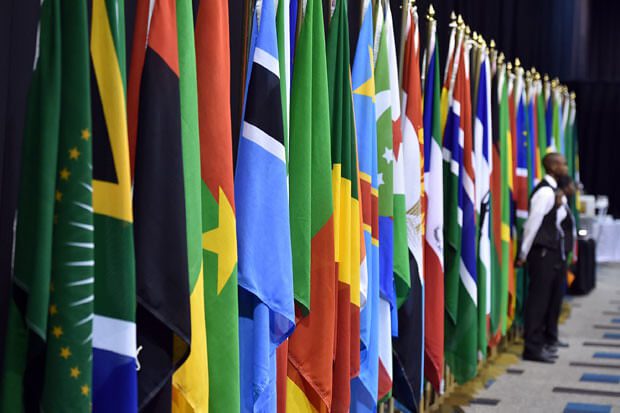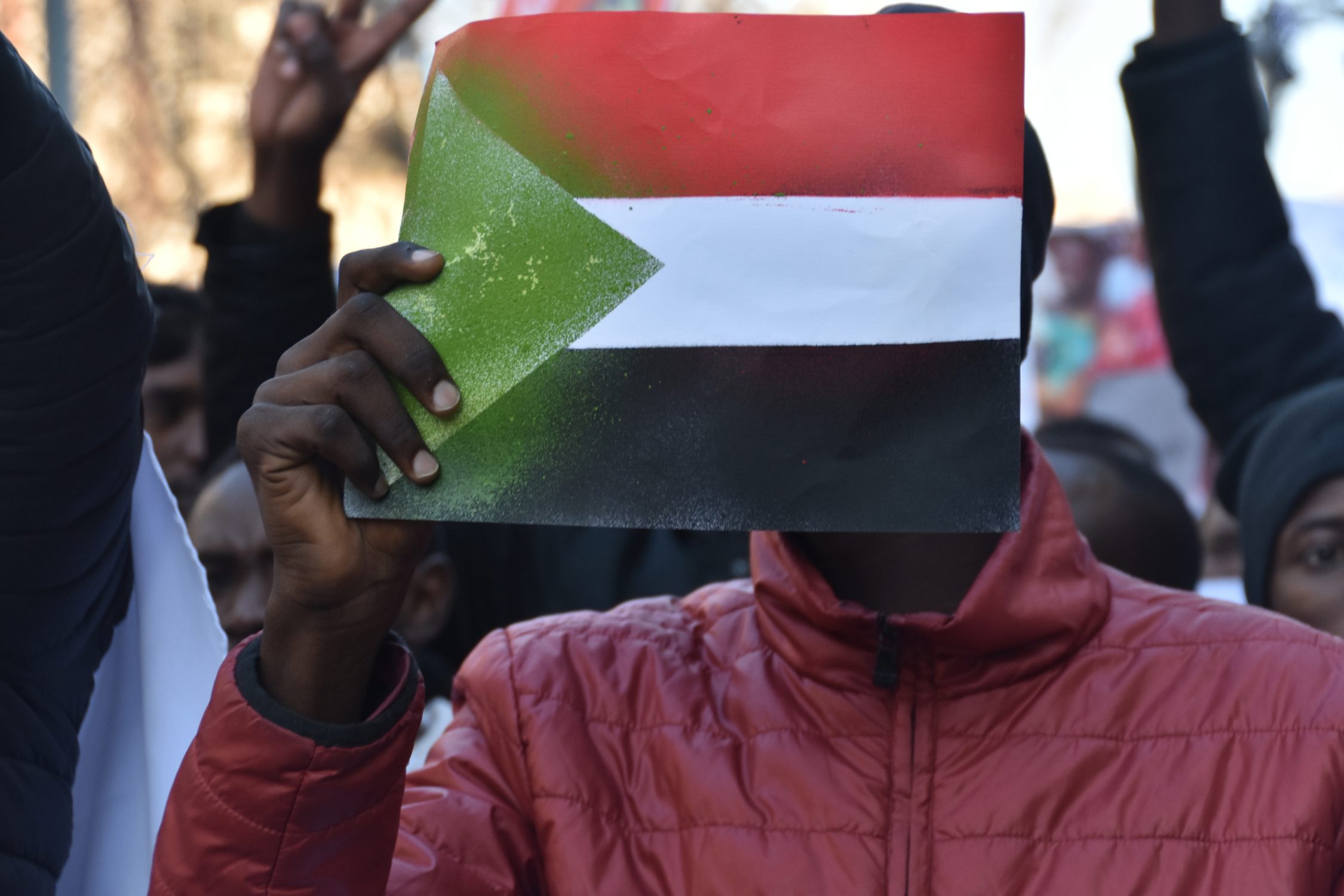The OAU Declaration on Fundamental Changes at 30 – A Retrospective Look at its Genesis and Impact
Access the full article, “An African Agenda for Peace, Governance and Development at Thirty: A retrospective look at the genesis and significance of the OAU’S July 1990 Declaration on Fundamental Changes“
This 11th of July marks the 30th anniversary of the Declaration on the political and socioeconomic situation in Africa and the fundamental changes taking place in the world. Adopted by the Organization of African Unity (OAU) in Addis Ababa, the Declaration has been the bedrock of many of Africa’s normative and policy advances over the past three decades. It provided encouragement and continental legitimacy to the democratization processes initiated in the early 1990s and set the stage for the redesign of the OAU conflict management tools, while also revitalizing the long-held dream of Africa’s integration. Yet, this policy document seems to have fallen from public attention. In a way, it was a victim of its own success: as the OAU and its successor, the African Union (AU), developed new and bolder instruments, it was bound to fall into some kind of oblivion.
The 1990 Declaration was Africa’s response to the multifaceted challenges confronting the continent at that time. Three interrelated aspects are key. Firstly, in the 1980s, the continent experienced a profound economic crisis giving rise to social unrest and demands for political reform. Secondly, after decades of struggle waged by the liberation movements, there was rapid change in Southern Africa, including the independence of Namibia and the beginning of the reforms and negotiations that soon resulted in the dismantlement of apartheid in South Africa. Thirdly, the international landscape was transformed by the end of the Cold War. Those developments impacted Africa, providing added impetus for reform and helping end some long-running conflicts. However, as these conflicts receded, others exploded in places like Liberia, Somalia and Sierra Leone.
Against this backdrop, Salim Ahmed Salim, who assumed office as OAU Secretary-General in September 1989, was convinced of the imperative for Africa to adjust to the new situation and set an ambitious agenda focusing on democratization and improved governance, economic integration and enhanced role on the global stage. To this end, he proposed that the February 1990 session of the Council of Ministers, usually devoted to budgetary and financial matters, also discuss the changes taking place in the world and their implications for Africa. Salim articulated what was at stake, and the Ministers requested him to prepare a fuller report. This, he did. The report was presented in July.
Our paper, published July 9, details the consultations that Salim conducted, the issues he confronted and the process of adopting the report. Most important, were the report’s recommendations.
These included the need for the continent to fully embrace democratic and accountable governance, as well as human rights; the redesign and institutionalization of the OAU’s conflict management mechanisms, to more effectively deal with interstate conflict and meaningfully engage in intrastate ones (including shifting from the principle of non-interference to that of non-indifference to mass violations); the acceleration of economic integration; and the nurturing of international solidarity, with the United Nations as the locus of the continent’s diplomatic endeavors.
Salim called for the strengthening of the OAU. He was disturbed by what he termed as the member states’ lack of enthusiasm towards the continental Organization, singling out their erratic attendance of meetings and irregular payment of contributions to the regular budget. In his view, they seemed to have fallen into some kind of complacency, as if the OAU, with the impending completion of the liberation struggle, was becoming less relevant. Yet the challenges that were facing the continent – from fostering economic integration and political transformation to giving Africa a fighting chance on the global stage – required closer unity and a stronger OAU.
Africa’s leaders agreed with the overall thrust of Salim’s analysis and adopted the Declaration on Fundamental Changes. All understood that change and adaptation were unavoidable, and the OAU framework offered the leaders the opportunity to set an African agenda. Two issues came up during the debate. First, the need to ensure that democratization took into account the specific realities of African countries, in opposition to the one-size-fits-all approach; second, rejecting political conditionalities on development aid—the latter partly in response to President François Mitterrand’s speech at the June 1990 La Baule Summit.
Compared to Salim’s report, the Declaration put greater emphasis on economic issues, making everything else—including the democratization and governance agenda—secondary to that objective. It stopped short of making an explicit link between the liberation struggle and the promotion of democracy and human rights. On conflict management, the Declaration stated the leaders’ commitment to work together towards the resolution of all conflicts on the continent, firmly placing internal conflicts within the Organization’s remit, but without the specifics proposed by Salim.
Overall, Salim achieved his objective. His vision was endorsed, and he got the mandate needed to move forward. Notably, the Conference on Security, Stability, Development and Cooperation (CSSDCA) was set in motion, which in due course provided the framework for Africa’s peace and security architecture and commitments on governance and democracy. Other direct legacies include the OAU’s opposition to unconstitutional changes of governments, especially military coups, and the policies to promote good economic and corporate governance and oppose corruption made within the context of the New Partnership for Africa’s Development (NEPAD).
The 1990 Declaration set a rich normative and policy framework. Its impact can be seen in the notable decline of military coups d’etat and the proactiveness of the African Court on Human and People’s Rights, which increasingly adjudicates critical political and constitutional issues, thus holding governments to account for commitments made within the AU framework. Equally significant is the way in which local actors, in specific contexts, have interpreted and questioned the validity of the norms relating to eligibility to elections aimed at resorting constitutional order, as spelt out in the 2007 African Charter on Democracy, Elections and Governance. Had this norm been deemed inconsequential, the actors concerned would have ignored altogether.
The 1990 Declaration shaped the evolution of the OAU conflict management tools. Indeed, deriving from it was the June 1993 Cairo Declaration establishing the OAU Mechanism for Conflict Prevention, Management and Resolution, two aspects of which are worth noting: the institutionalization of the conflict management processes, to give them the required continuity; and the emphasis on prevention, which restricted the scope of the non-interference norm, whose narrow interpretation had for too long stymied the OAU’s efforts.
Economic integration also benefited from the momentum brought about by the July 1990 Declaration. A year later, the OAU Summit in Abuja adopted the Treaty creating the African Economic Community, an objective to be achieved over a period of 34 years—still work in progress, but with remarkable successes to note. Also, thirty years later, one cannot but be struck by the commonalities between the concerns that informed Salim’s proposals and follow-up steps towards reforming the OAU and those at the heart of the AU institutional reform spearheaded by President Paul Kagame. The overarching objective then, as it is today, was to make the Organization more fit for purpose.
Most commentaries on the OAU and the AU focus on the discontinuities, dismissing the OAU as a “club of dictators” and seeing the AU norms, principles and institutions as a break with the past. These differences cannot be denied, but there are also marked continuities. Indeed, many of the AU initiatives can be traced to policies and efforts made under the OAU. From that standpoint, one can look at the 1990 Declaration as a key inflexion point.
Three decades on, while Africa has made tangible advances in the pursuit of the objectives set in the Declaration on Fundamental Changes, a lot remains to be done. As the continent deploys renewed efforts to address the challenges at hand in an undoubtedly unfavorable international environment, it is important to recall the 1990 Declaration, for it holds important lessons for how Africa can seize the initiative at moments of global turmoil. African solutions are possible, resting on three pillars: the centrality of African institutions, most notably the AU; the ownership of the analysis of the problems at hand; and the formulation of context-specific responses. Beyond political actors, this anniversary, as muted as it is, is also an invitation to academics and other observers to properly put into context the policy and normative developments witnessed on the continent in the past decades; pay greater attention to hitherto little known aspects of African agency; and be alert to the ways in which the battle for democracy and better governance has been and continues to be shaped by the (O)AU.
Photo: GovernmentZA African Union Summit, 7 – 15 Jun 2015 (CC BY-ND 2.0)



